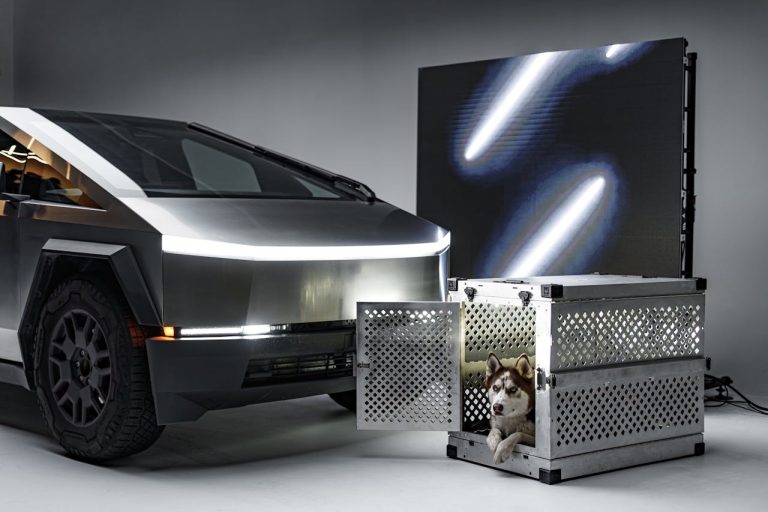The Future of Green Transportation
As global trends toward environmental protection intensify, the automotive industry is undergoing a profound transformation. Electric vehicles (EVs) and hydrogen fuel cell vehicles (FCEVs) are seen as the two major pillars of future transportation. In 2025, global sales of electric vehicles are expected to exceed 20 million, while the market share of hydrogen-powered cars remains small but gradually gaining attention due to its unique advantages. Today, we will compare these two technologies and analyze which one holds more promise for the future, answering the question: “Hydrogen vs Electric Cars: The Future of Sustainable Mobility.”
1. Electric Vehicles (BEVs): Leading the Battery Revolution
Technical Background
Battery Electric Vehicles (BEVs) are currently the most widely adopted type of new energy vehicle. They operate by storing electrical energy in batteries, which power an electric motor. In recent years, as battery technology has continuously advanced—especially with the progress of solid-state and lithium batteries—the driving range, charging efficiency, and lifespan of electric vehicles have significantly improved. For instance, Tesla’s Model S now boasts a range of over 600 kilometers, making electric vehicles more mainstream.
Market Status and Data
According to the latest data from the International Energy Agency (IEA), global electric vehicle sales will approach 20 million units by 2025, accounting for 15% of the global automotive market. Policies in many countries, such as subsidies and tax exemptions, are also accelerating the rapid growth of the electric vehicle market. The sales of electric vehicles in countries like China, the United States, and Europe are experiencing explosive growth.
Advantages Analysis
- Zero Emissions: One of the biggest advantages of electric vehicles is zero emissions, fully meeting current environmental protection requirements. In particular, electric vehicles play an irreplaceable role in urban air pollution control.
- Expansion of Charging Infrastructure: With governments and companies around the world promoting the construction of charging stations, the charging infrastructure for electric vehicles is gradually improving, making it more convenient for owners to charge their vehicles.
- Lower Operating Costs: Electric vehicles have lower maintenance costs compared to traditional vehicles. The cost of electricity is also cheaper than gasoline, and the powertrain in electric vehicles is simpler, requiring less frequent maintenance than traditional internal combustion engines.
Challenges and Limitations
- Range Anxiety: Although battery technology has made progress, the driving range of electric vehicles is still limited compared to traditional gasoline cars. Even the latest electric vehicles still face limitations, particularly for long-distance travel on highways, where charging times become a major concern for owners.
- Charging Infrastructure Underdevelopment: While the number of charging stations in major cities is increasing, there is still a lack of charging infrastructure in remote areas, which significantly restricts the widespread adoption of electric vehicles.
2. Hydrogen Fuel Cell Vehicles: The Potential of Zero Emissions
Technical Background
Hydrogen fuel cell vehicles operate by using hydrogen and oxygen to generate electricity to drive the electric motor. The only byproduct of this process is water, making hydrogen vehicles a “clean energy” solution. Unlike batteries, hydrogen fuel cells have a natural advantage in terms of energy density and range, allowing hydrogen vehicles to travel longer distances with faster refueling times.
Market Status and Data
While hydrogen vehicles currently account for a small share of the market, automakers such as Toyota and Hyundai have made significant investments in hydrogen technology. By 2025, global hydrogen fuel cell vehicle sales are expected to surpass 100,000 units. With advancements in technology and increasing policy support, the potential for hydrogen vehicles is becoming more evident, especially in heavy-duty vehicles and long-distance transportation.
Advantages Analysis
- Fast Refueling: Refueling a hydrogen vehicle only takes a few minutes, much quicker than charging an electric vehicle. For long-distance drivers, hydrogen vehicles offer a refueling experience similar to traditional gasoline cars.
- Longer Range: Hydrogen vehicles typically offer longer driving ranges, making them ideal for long-distance travel. In markets such as long-haul transportation and heavy-duty trucks, hydrogen vehicles have a distinct advantage.
- Suitability for Heavy-Duty Vehicles: Hydrogen technology is particularly advantageous in heavy-duty trucks and buses, where electric battery systems may not provide enough power or range. Hydrogen fuel cells can easily address these needs.
Challenges and Limitations
- Underdeveloped Refueling Infrastructure: Currently, there are far fewer hydrogen refueling stations compared to electric charging stations, and building this infrastructure is costly and technically challenging. This remains a major barrier to the widespread adoption of hydrogen vehicles.
- High Production Costs: Hydrogen production costs are relatively high, especially if it relies on fossil fuels rather than renewable energy sources. This makes hydrogen vehicles more expensive to operate compared to electric vehicles.
3. Hydrogen vs Electric: A Comparison of Technologies, Markets, and Future Trends
Technology Comparison
- Energy Density: Hydrogen has a significantly higher energy density than batteries, meaning hydrogen vehicles can store more energy in a smaller volume, offering longer driving ranges.
- Refueling Time: Hydrogen vehicles have the advantage of faster refueling times compared to electric vehicles’ charging times. While fast-charging technology for electric vehicles is advancing, it still cannot match the convenience of hydrogen refueling.
Market Development Trends
- Dominance of the Electric Vehicle Market: Currently, electric vehicles dominate the market, but hydrogen fuel cell vehicles are likely to find application in specific markets such as heavy-duty transportation and long-distance travel. By 2025, hydrogen vehicles are expected to see double-digit growth in market share, particularly in regions with strong policy support.
- Co-Development: In the future, electric and hydrogen vehicles may coexist, depending on market demands and technological developments. Electric vehicles will continue to dominate the personal consumer market, while hydrogen vehicles will be better suited for long-distance transport and heavy-duty vehicles.
Environmental Impact
While electric vehicles help reduce tailpipe emissions, their environmental benefits are lessened if the electricity grid relies on fossil fuels. In contrast, if hydrogen is produced from renewable energy sources (e.g., wind, solar), the environmental benefits of hydrogen vehicles become even more significant.
4. Future Outlook: Who Will Dominate the Market?
Industry Expert Insights
Industry experts predict that electric vehicles will continue to dominate the market for the next several years, but hydrogen fuel cell vehicles will gradually occupy space in long-haul transportation and heavy-duty trucks. By 2025, the market share of hydrogen vehicles is expected to see two-digit growth, particularly in regions with strong policy support.
Market Prospects
The competition between electric and hydrogen vehicles is not just a battle of technologies but also a battle of capital and policies. As both technologies advance, market demand evolves, and we may see both types of vehicles complementing each other in the future.
5. The Future of Car Power – Collaboration and Coexistence
The competition between electric and hydrogen vehicles is not an either/or scenario. In the future, the automotive power landscape may involve both technologies coexisting. Electric vehicles will continue to dominate the personal consumer market, while hydrogen vehicles will lead in heavy-duty transport and long-distance travel. As technology advances and infrastructure is built, we may see a fusion of the two, creating a more complete green transportation solution.
FAQ (Frequently Asked Questions)
- What is the fundamental difference between hydrogen fuel cell vehicles and electric vehicles?
- Hydrogen fuel cell vehicles generate electricity by reacting hydrogen with oxygen, while electric vehicles rely on batteries to store energy and drive an electric motor. Hydrogen vehicles have faster refueling times and longer ranges, whereas electric vehicles are better suited for urban and short-distance driving.
- Will hydrogen fuel cell vehicles replace electric vehicles?
- No, they will not replace electric vehicles. Both technologies will coexist in the market, with electric vehicles dominating urban transportation and hydrogen vehicles being more suitable for long-haul transport and heavy-duty vehicles.
Which do you think will dominate the future: hydrogen vehicles or electric vehicles? Share your thoughts in the comments section, and feel free to share this article with others interested in the future of automotive power.







